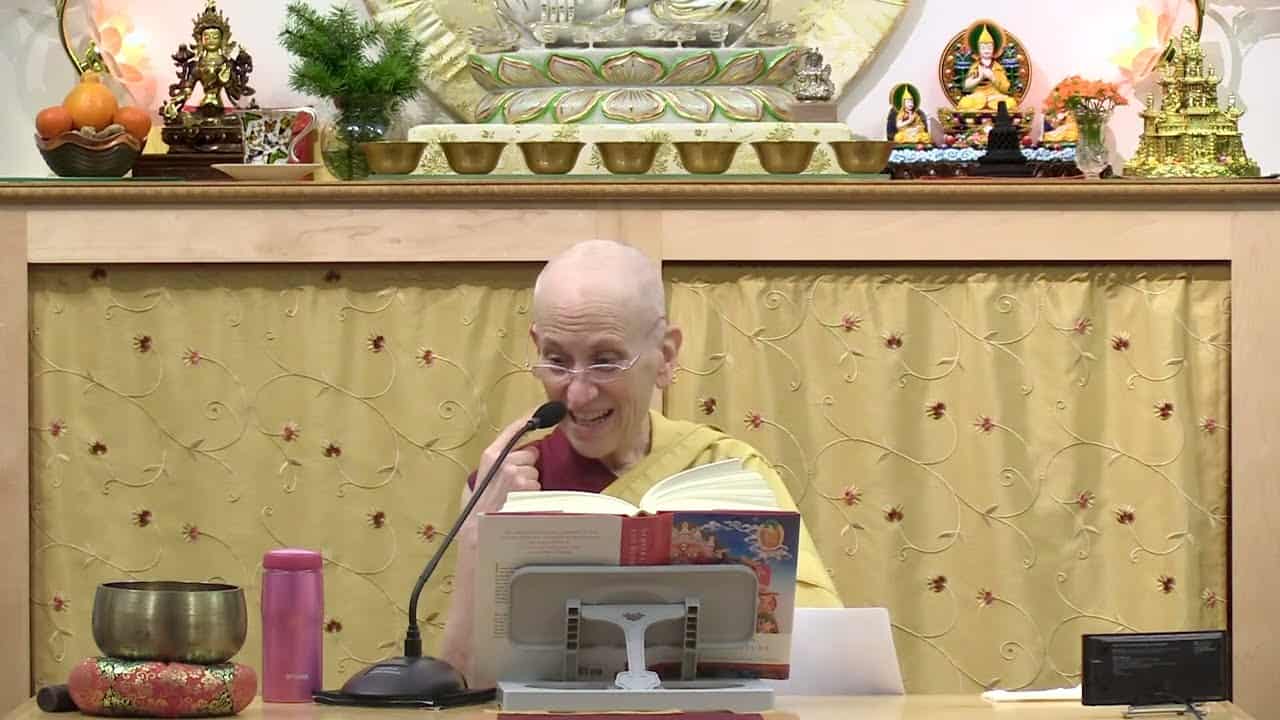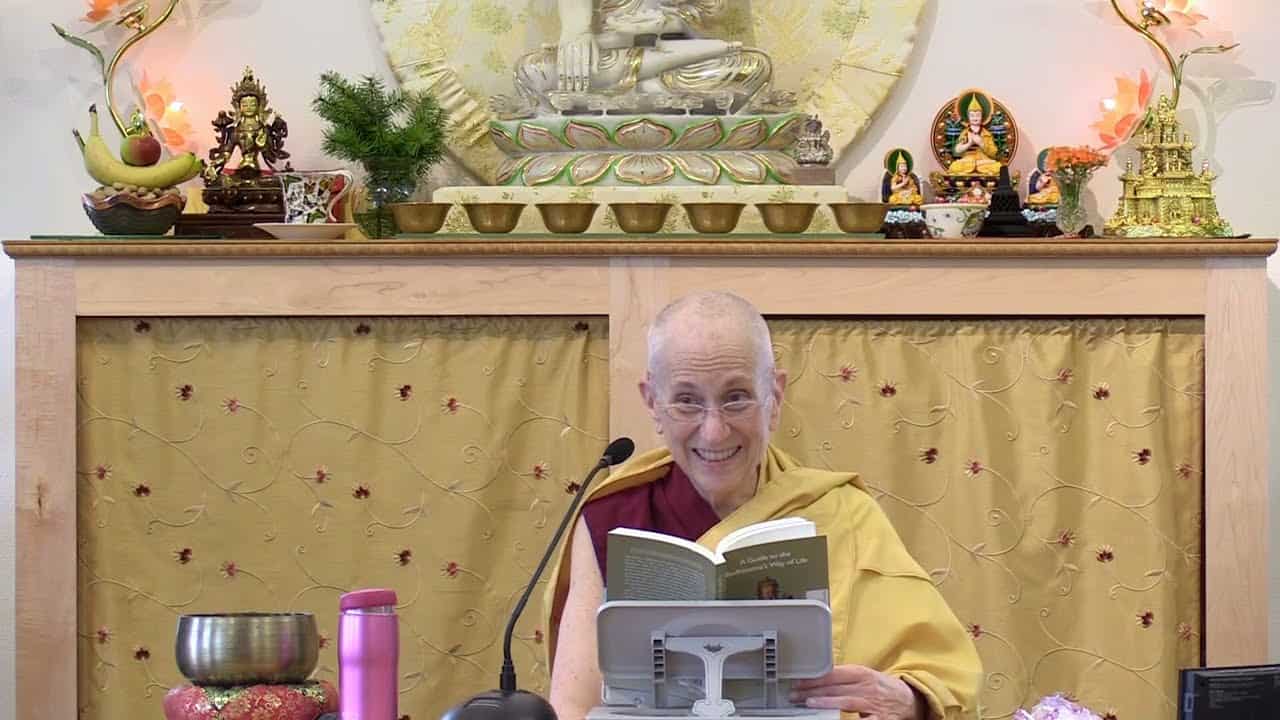Developing great compassion
04 Kamalashila's "Stages of Meditation"
Part of an online course on Kamalashila's Stages of Meditation given by Geshe Yeshe Thabkhe for Sravasti Abbey in 2022.
- Review: meditating on compassion
- Equanimity
- Loving-kindness
- Compassion
- Equanimity: foundation for developing great compassion
- Consider rebirth: all sentient beings have been close and kind to us
- Labels in this life are not fixed
- Meditation order: “strangers”, “friends”, “enemies”, all sentient beings
- Consider rebirth: all sentient beings have been close and kind to us
- Loving-kindness
- Seven-point cause and effect
- Compassion
- Suffering of cyclic existence
- General: three types of dukkha
- Individual: beings in each of six realms
- Compassion at all times: on and off cushion
- Meditation order: “friends”, “strangers”, all sentient beings
- Suffering of cyclic existence
- Measure of Great Compassion
Geshe Yeshe Thabkhe
Geshe Yeshe Thabkhe was born in 1930 in Lhokha, Central Tibet and became a monk at the age of 13. After completing his studies at Drepung Loseling Monastery in 1969, he was awarded Geshe Lharampa, the highest degree in the Geluk School of Tibetan Buddhism. He is an emeritus professor at the Central Institute of Higher Tibetan Studies and an eminent scholar of both Madhyamaka and Indian Buddhist studies. His works include Hindi translations of The Essence of Good Explanation of Definitive and Interpretable Meanings by Lama Tsongkhapa and Kamalasila's commentary on the Rice Seedling Sutra. His own commentary, The Rice Seedling Sutra: Buddha’s Teachings on Dependent Arising, was translated into English by Joshua and Diana Cutler and published by Wisdom Publications. Geshela has facilitated many research works, such as a complete translation of Tsongkhapa’s The Great Treatise on the Stages of the Path to Enlightenment, a major project undertaken by the Tibetan Buddhist Learning Center in New Jersey where he teaches regularly.


